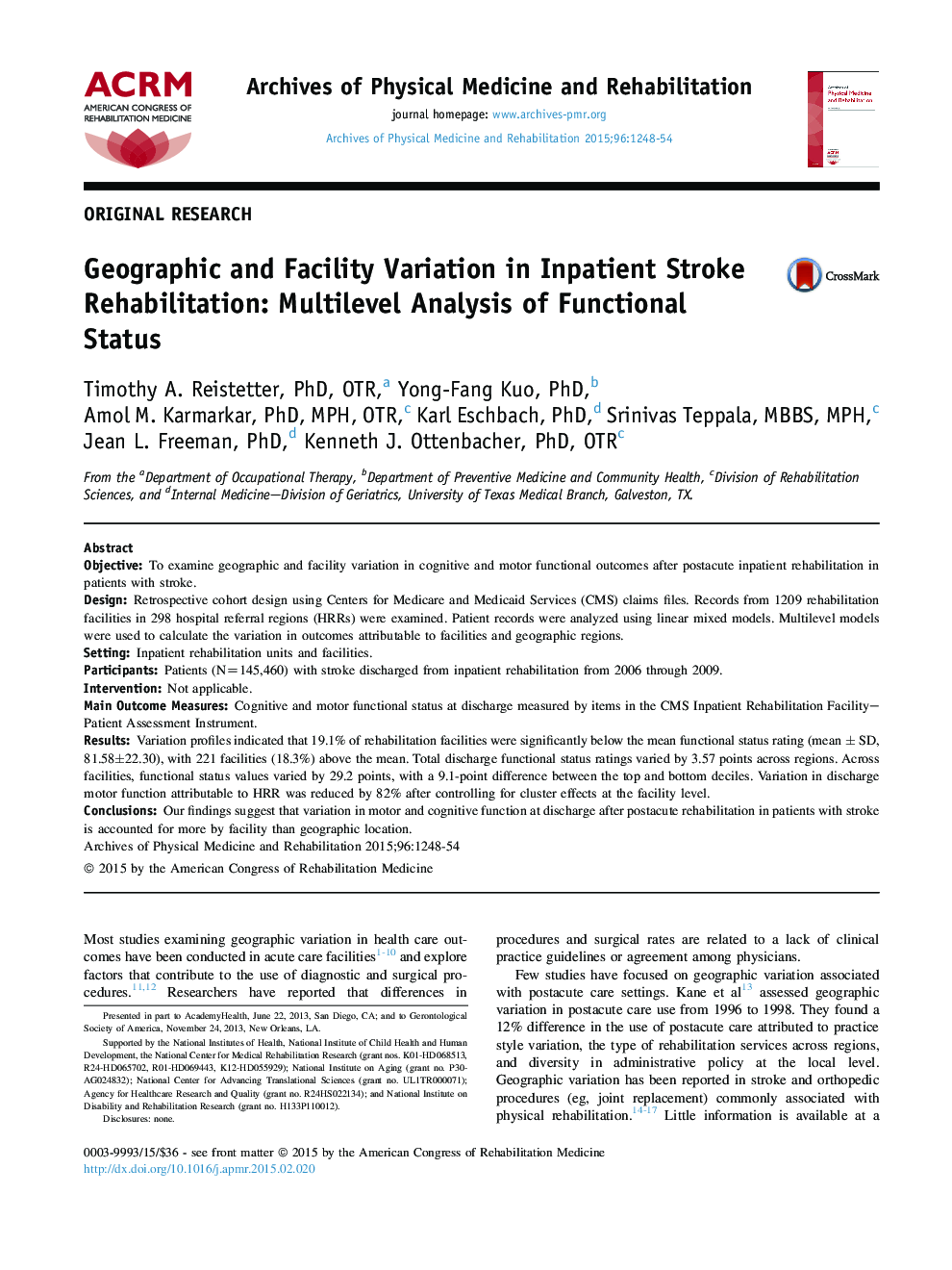| Article ID | Journal | Published Year | Pages | File Type |
|---|---|---|---|---|
| 3448106 | Archives of Physical Medicine and Rehabilitation | 2015 | 7 Pages |
ObjectiveTo examine geographic and facility variation in cognitive and motor functional outcomes after postacute inpatient rehabilitation in patients with stroke.DesignRetrospective cohort design using Centers for Medicare and Medicaid Services (CMS) claims files. Records from 1209 rehabilitation facilities in 298 hospital referral regions (HRRs) were examined. Patient records were analyzed using linear mixed models. Multilevel models were used to calculate the variation in outcomes attributable to facilities and geographic regions.SettingInpatient rehabilitation units and facilities.ParticipantsPatients (N=145,460) with stroke discharged from inpatient rehabilitation from 2006 through 2009.InterventionNot applicable.Main Outcome MeasuresCognitive and motor functional status at discharge measured by items in the CMS Inpatient Rehabilitation Facility–Patient Assessment Instrument.ResultsVariation profiles indicated that 19.1% of rehabilitation facilities were significantly below the mean functional status rating (mean ± SD, 81.58±22.30), with 221 facilities (18.3%) above the mean. Total discharge functional status ratings varied by 3.57 points across regions. Across facilities, functional status values varied by 29.2 points, with a 9.1-point difference between the top and bottom deciles. Variation in discharge motor function attributable to HRR was reduced by 82% after controlling for cluster effects at the facility level.ConclusionsOur findings suggest that variation in motor and cognitive function at discharge after postacute rehabilitation in patients with stroke is accounted for more by facility than geographic location.
